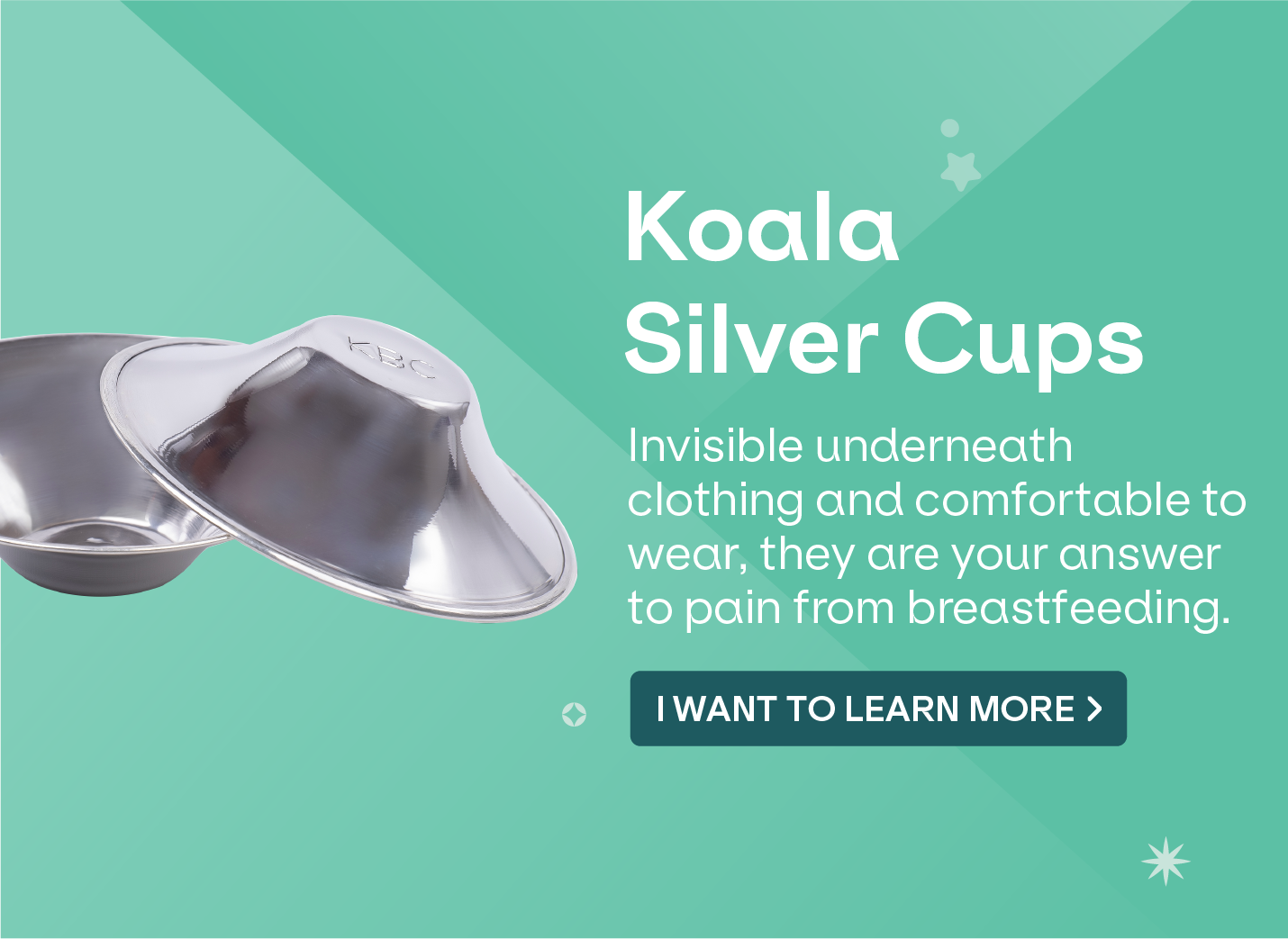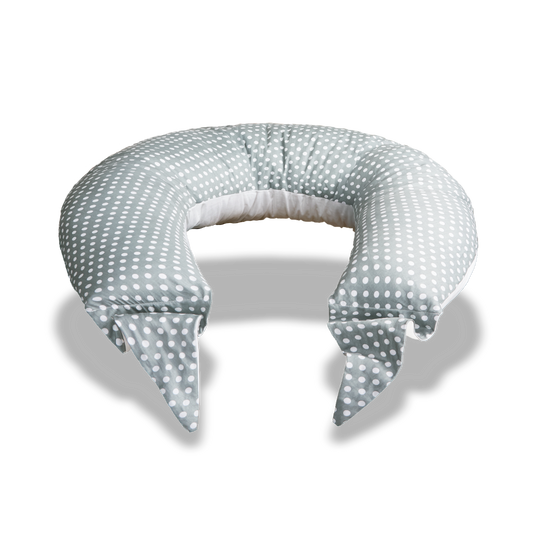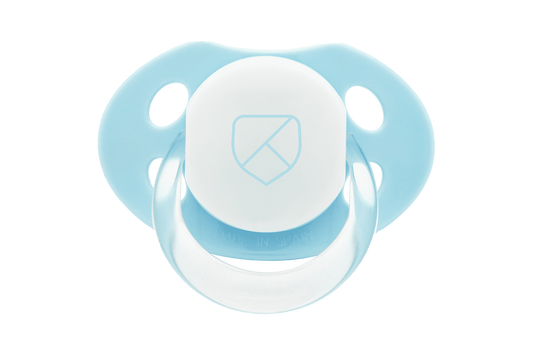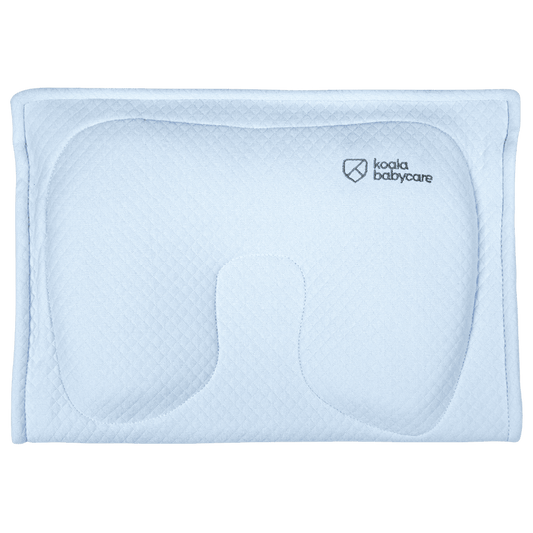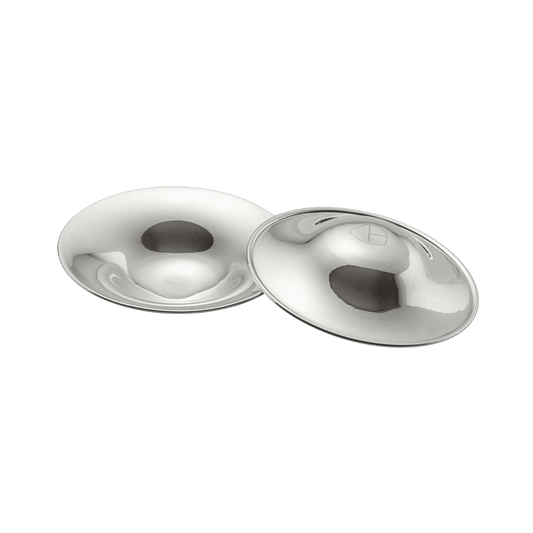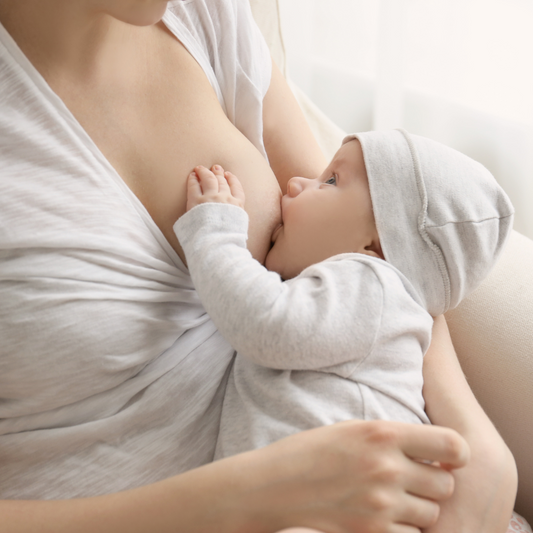All new parents wonder: how much does a newborn eat in the first months of life? Whether you’re breastfeeding or bottle feeding, we explain how to determine the right amount for your baby. Most importantly, remember: every child is unique, and there’s no mathematical formula that can be considered applicable to each and every baby.
How much breast milk does a newborn need?
Newborn babies do not need large amounts of milk. Their stomach is still very small, smaller than the size of a walnut. As they grow, their need for milk will increase, but they will self-regulate by feeding longer or more frequently.
Infants have a remarkable capacity for self-regulation. Let your baby guide you: they will communicate when they’re hungry (we’ll see how later), and when they detach from your breast or fall asleep it means they’re full. Basically, trust them. This is the idea behind breastfeeding on demand.
As your little one’s demand rises, your body will also increase milk production in a completely natural way.
How many times a day should I breastfeed my baby?
The number of feeds per day varies from 8 to 12, with intervals in-between each feed of about two and a half hours to four hours.
When feeds are frequent and close together, the main concern we may have is that milk production is low and that your baby is not getting enough milk and are, therefore, hungry. This isn’t necessarily true.
For newborns, latching on to the breast responds to their primary need for contact, just like when being held or cuddled, which provides them with a sense of protection and security.
If your baby demands the breast every hour and a half, don't be alarmed. They may just simply be asking for close contact with you. However, do seek advice from a doctor who will be able to assess if your baby is growing enough.
There are also some clear signs as to whether a baby is full or not, more on this later. Generally, we can say that if an infant shows these signs, there’s no cause for concern if your little one doesn’t want a feed again until up to 5 hours after their last one.
Therefore, if they’re sleeping, do not wake them for a feed. They will wake up when they need to be fed.
Obviously, these are to be considered general guidelines. Each and every baby is unique, and their needs may vary: if, for example, your baby is not able to communicate when they’re hungry to you and tends to sleep for a long time, then it might be a good idea to wake them up every three hours for a feed.
Also bear in mind that the number of daily feeds does not always remain the same; on the contrary, it can increase or decrease depending on the growth phase each baby is going through.
For example, if your infant is going through a growth spurt, they will want more milk.
Or, when it’s warmer, they may need to hydrate more and, consequently, frequency of demand rises as they may prefer your 'first milk', which is less fatty and more thirst-quenching.
How often should a week old baby eat? How often does a two week old baby eat? These are some of the frequent questions asked by new parents. Our guidelines will help answer any doubts, however, the most important thing is trusting your baby’s ability to determine for themselves how much milk they need.
How much does a newborn eat per feeding?
It’s very difficult to determine how much milk a baby takes in at each feed. In the past, a method which involved weighing the baby before and after breastfeeding was used. But this is no longer advised as it can cause parents to worry or become anxious.
In fact, there’s no rule in establishing how much milk a baby should drink each time they are breastfed. Breast milk production responds naturally to the needs and demands of every single infant.
How do I know if my newborn is full?
To understand whether your baby has had enough milk, you can use the following guide:
- Your baby stops feeding
- Your baby detaches from the breast or bottle and no longer shows any interest
- Your baby is asleep or tends to fall asleep
How much formula for newborns?
Your doctor or NHS Health Visitor usually provides guidance on the amount of formula milk to give your baby at each feed. During the first month it’s around 110-120 ml per feed and this then increases with each month.
However, this amount of formula is flexible, as, in actual fact, every baby decides how many bottles they need per day according to their individual needs and requirements.
Keep in mind that bottle fed babies generally feed less frequently than breastfed babies, as formula milk takes longer to digest.
Do bottle fed babies have the same capacity to self-regulate?
A bottle-fed baby (this includes when breast milk is pumped) generally are less able to self-regulate than breastfed babies.
This is due to the fact that the sucking action is different and harder for them to control on their own, as a grown-ups intervention is greater when bottle-feeding. The composition of the milk itself is another factor which influences their ability to self-regulate.
How to calculate how much milk a newborn should drink
Doctors use a mathematical formula to calculate how much milk a newborn baby should have over the course of 24 hours.
You start with the baby's weight in grams, divide by 10 and then add 250 to the result. Let's give an example: let's say your baby weighs 4 kg (4000 grams). Divided by 10 we have 400, to which we have to add 250. Therefore, in one day the baby should consume a total of 650 g of milk.
How often does a 1 month old baby feed
During the first week of a newborn’s life, we start with 10 ml of milk per feed, increasing the dose by 10 ml per day. After the first week, you reach about 100 ml at each feed, which should be six feeds in a day.
How often does a 2 month old baby feed
During the second month, the number of feeds decreases to five per day, each feed with about 110/120 ml of milk.
How often does a baby eat at 3 months
During the third month the amount of milk increases to 140/150 ml, while the number of feeds remains the same.
How to know if your newborn is feeding and growing well
Many parents fall into the habit of constantly weighing their baby to check that they’re growing properly. You can actually tell if your newborn is feeding and growing properly by these factors:
- Your baby is happy and active
- Constant weight gain
- Your baby is feeding about eight times a day
- Your baby regularly wets and soils their nappy
On the contrary, if your little one is often fussy, cries constantly, is irritable even after a feed and does not wet or soil their nappy properly, then something is wrong, and it is a good idea to consult your doctor as soon as you can.
A newborn should gain about 150-200 g per week during the first three months of life, but this does not apply to all babies and may vary week to week. One week their weight may increase by only 100 g, and the next by 200 g.
There are also smaller babies, such as premature babies, who grow and develop at a slower rate than others. The important thing is that their weight increases steadily.
And that they are curious, active, and content. These are the best signs that your baby is getting enough milk.
In summary, don’t fret too much about the amount of milk your newborn is drinking, nor about the amount of time that passes between feeds, e.g., 4hrs instead of 3hrs. The important thing is that your baby is full after each feed, is generally calm and is growing and developing regularly.
The information contained on this Site is purely of an informative nature and does not replace any diagnosis or treatment advice received from a doctor. We recommend that you always seek advice from your family doctor and / or specialists.



